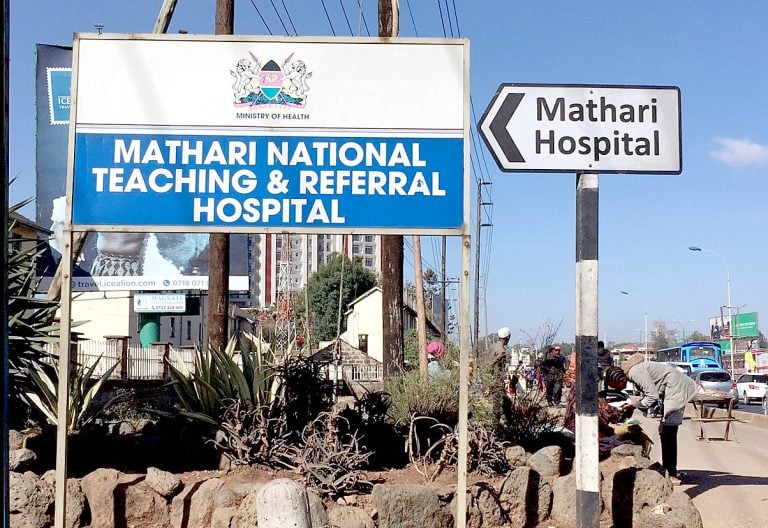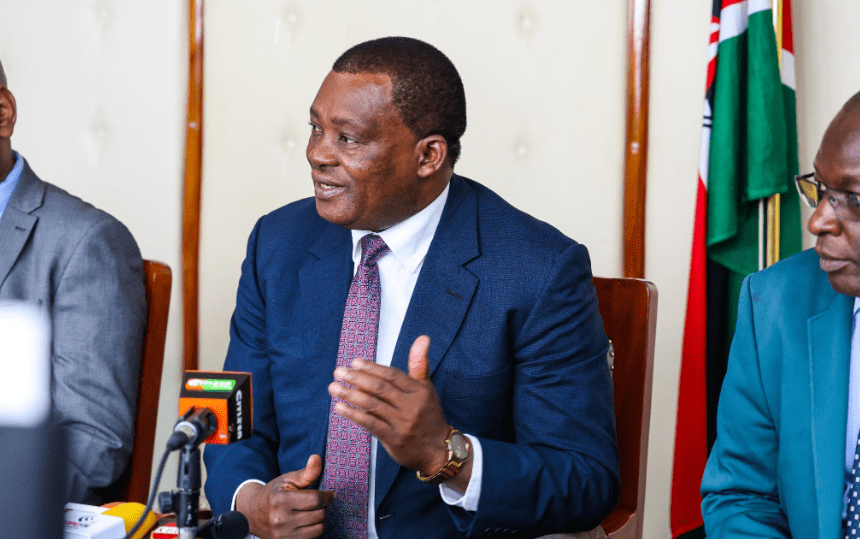Auditor: Patients at Mathari Hospital sleep on the floor

Auditor General Nancy Gathungu has raised concerns over the deteriorating state of Mathari National Teaching and Referral Hospital, Kenya’s premier psychiatric facility, in her report for the financial year 2024/25.
According to the chief auditor, patients at the hospital sleep on the floor due to a shortage of beds, creating an environment prone to infections.
The report highlights that while the hospital maintains records showing 6,653 beds, the number of inpatients consistently exceeds this capacity, violating the right to health as enshrined in Article 43(1)(a) of the Constitution of Kenya, 2010.
“In the circumstances, management was in breach of the law,” the report reads.
Gathungu’s report also reveals that Mathari Hospital’s land has been encroached upon by private developers.
A physical verification conducted in October 2024 found that the land was partially fenced, making it vulnerable to further encroachment.
Completing tasks
An undisclosed developer had even erected a temporary fence on the unfenced section, which contravenes Regulation 139(1) of the Public Finance Management (National Government) Regulations, 2015.
The regulation mandates that government entities take full responsibility for ensuring proper asset control systems, including preventative measures against theft and misuse.
In addition to issues at Mathari Hospital, Gathungu flagged several other significant concerns within the health sector. One of the most alarming issues was the lack of testing of health products.
The report cites drugs worth Ksh49,597,602 issued to hospitals without evidence of testing, which violates Section 35D(1)(c) of the Pharmacy and Poisons Act, 2012.
This law mandates that the National Quality Control Laboratory test all locally manufactured and imported drugs.
“In the circumstances, Management was in breach of the law,” the report notes.
The report also sheds light on vaccine shortages at the Central Vaccine Store (CVS), with three critical vaccines—BCG, OPV, and Measles Rubella—out of stock for an average of 65 days.
This shortage was attributed to delays in funding the procuring agent. The stock-out at CVS has a direct impact on vaccine availability at health facilities, affecting the health and well-being of citizens.
“This was contrary to Section 160(1) of the Public Procurement and Asset Disposal Act, 2015, which requires that government entities manage their inventory and stores to prevent wastage and loss,” the report states.
Further raising alarms, Gathungu reported that significant amounts of unshipped COVID-19 vaccine doses remain unutilized.
Despite an agreement with the African Vaccine Acquisition Trust (AVAT) and the African Export-Import Bank (AFREXIMBANK) to procure 13.3 million vaccine doses for $57.68 million, only 1.8 million doses were delivered, leaving a balance of over 11.5 million doses undelivered.
Worse, another 2.7 million doses were manufactured but not shipped, and have been deemed unnecessary and are awaiting destruction.
AVAT has demanded a payment of Ksh8.3 billion ($64 million) from the Kenyan government, which includes the principal amount of Ksh7.4 billion ($57.6 million) and accrued interest of Ksh930.6 million ($7.2 million) for the undelivered vaccines.
The government has engaged AFREXIMBANK to waive the interest, but as of the time of the audit, the bank had not agreed to the request.
Gathungu expressed concern that the ongoing delays could result in further financial liabilities.
“Value may not have been realised from the agreement for the supply of COVID-19 doses, while the government is at risk of accruing further interest with the continued delays in settling the accounts,” the report concludes.














